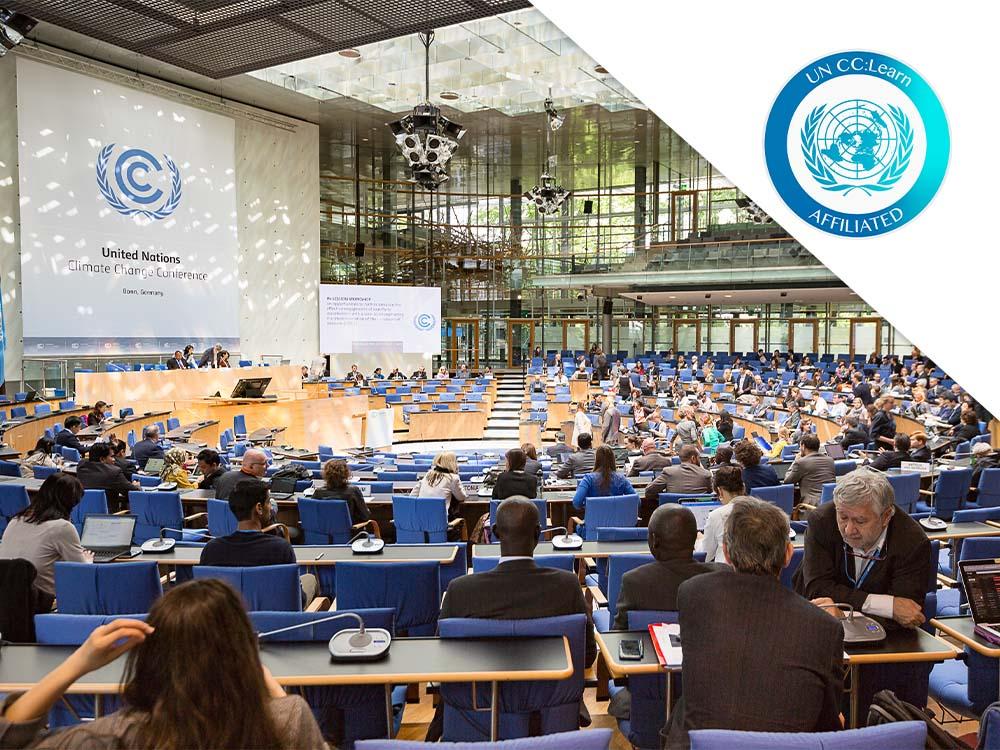
A Participant Guide of the UN Climate Change Process
UNFCCC (668)
Welcome!
In 1992, countries agreed on an international treaty, the United Nations Framework Convention on Climate Change (UNFCCC), as a framework for international cooperation to combat climate change by limiting average global temperature increases and the resulting climate change and coping with its impacts. There are 198 countries that have ratified the Convention, called Parties to the Convention, and every year, they hold a Conference of the Parties (COP).
This course introduces the international climate change regime, its three key instruments (The UNFCCC, the Kyoto Protocol, and the Paris Agreement), and the institutional arrangements for the climate change intergovernmental process. This course focuses on UNFCCC rules of procedure regarding the negotiation process as well as the mechanism for convening the Parties through various forums and working groups, including the presidency and bureau, observers and elections, and the decision making and reporting processes.
What will you learn?
After completing this course, you will be able to:
Present the international climate change regime, including:
- the three instruments of the UN climate change regime – the UNFCCC, the Kyoto Protocol, and the Paris Agreement.
- how the UNFCCC operates through the COP process and major COP accomplishments.
- the organization and administration of the annual COPs.
- The institutional arrangements for the climate change intergovernmental process
Describe and analyse the draft Rules of Procedure of the Conference on the Parties, including:
- responsibilities and operating procedures of governing, subsidiary, and other decision-making bodies.
- the process for Parties to come to a consensus on the issues under negotiations.
Course at a glance
This online course includes one online lesson with two learning modules and a quiz that take an average of two hours to be completed.
Module 1: Overview of the United Nations Framework Convention on Climate Change Process
Module 2: The Negotiations and Rules of Procedure of the Intergovernmental Climate Change Process
Certification
Participants who successfully pass the quiz with a minimum grade of 70% within three attempts will get an official UN Climate Change certificate.
Who is this course for?
This course is open to everyone who wishes to learn more about the UNFCCC process, including Party and non-Party stakeholders and the civil society.

